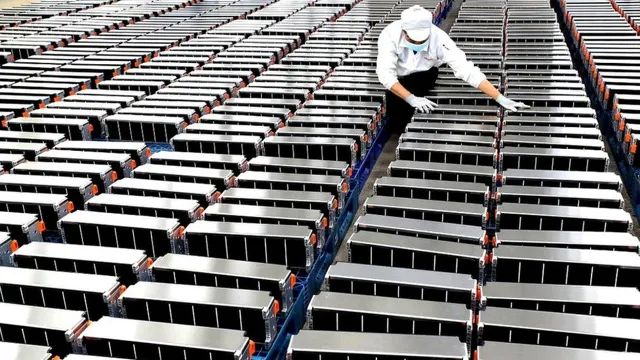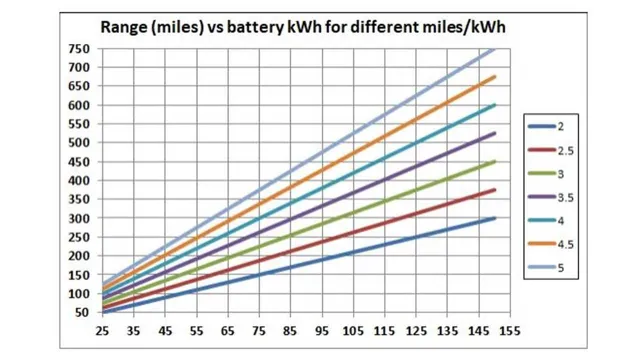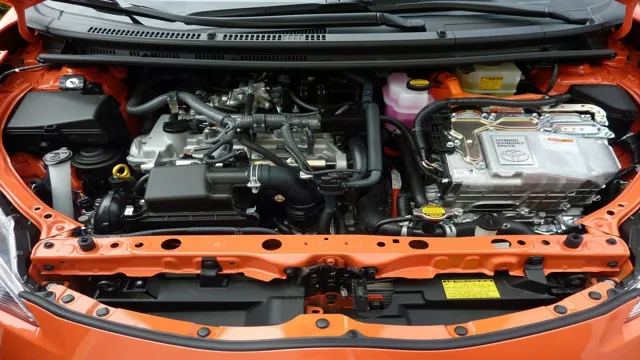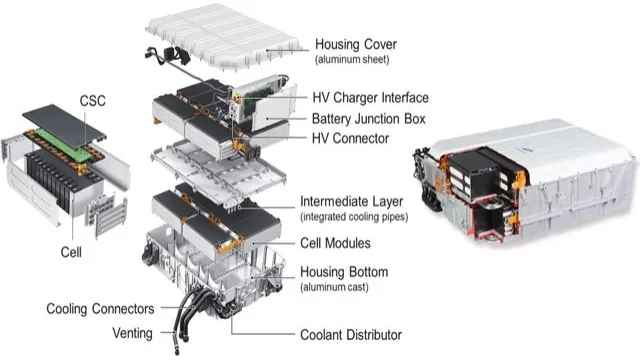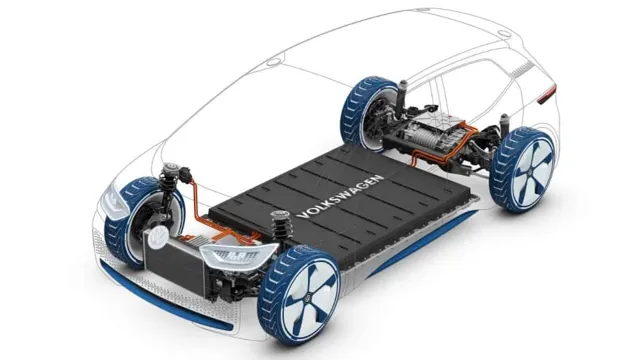China’s Dominance in Electric Car Batteries: Facts You Need to Know
China has been rapidly expanding its presence in the electric car market over the past few years, and now accounts for a staggering 78% of all electric car batteries produced worldwide. This is a significant milestone in the country’s efforts to dominate the electric vehicle industry. The move towards producing more eco-friendly vehicles is a global trend and China seems to be leading the charge.
But what has enabled China to achieve such a dominant position in the production of electric car batteries? And what impact will this have on the global market for these vehicles in the years to come? Let’s dive a little deeper and explore the factors behind China’s rise in this key area of the green revolution.
Introduction
It’s no secret that the market for electric cars has been growing rapidly in recent years. However, what many people don’t realize is that the vast majority of the batteries used in these vehicles are actually made in China. In fact, a whopping 78% of the world’s lithium-ion batteries are produced in China.
This has led to concerns about the country’s dominance in the electric vehicle industry, as well as questions about the safety and sustainability of the batteries themselves. Despite these concerns, it’s clear that China will continue to be a major player in the electric car market for years to come. As the industry evolves and new technologies emerge, it will be interesting to see how this dynamic changes and how other countries may become more involved in the production of these vital components.
Why China Dominates Electric Car Battery Production
“China dominates electric car battery production” Electric cars have gradually become popular in recent years due to the growing concern for environmental issues and the depletion of oil reserves. While several automakers produce electric cars, China is emerging as the epicenter of electric car battery production. This is due to several factors, including China’s massive population, abundant resources, and the government’s investment in clean energy.
Besides, China controls a significant portion of the world’s rare earth minerals, which are essential components in producing lithium-ion batteries used in electric cars. Additionally, Chinese companies benefit from cost advantages and economies of scale, enabling them to produce batteries at a lower cost than their competitors. As the demand for electric cars continues to grow globally, it’s expected that China will continue to dominate the electric car battery production market.
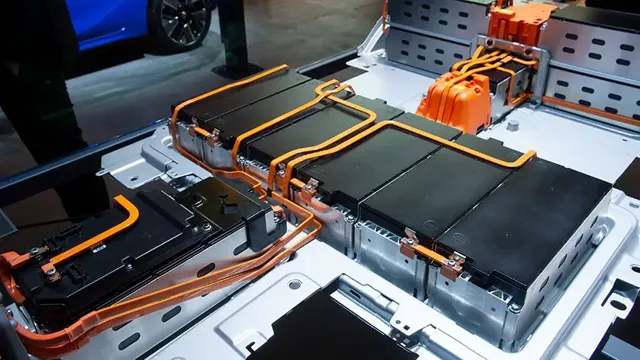
The Impact on Global Electric Car Industry
Electric Car Industry Since the first electric car was released in the late 1800s, the automotive industry has been revolutionized and continues to shift towards more sustainable practices. In recent years, governments and consumers worldwide have recognized the benefits of electric cars, such as lower greenhouse gas emissions, and have been incentivizing their adoption. As a result, the global electric car industry has experienced significant growth and is projected to continue to expand.
This trend has not only led to the creation of new job opportunities and innovations but also a reduction in the overall environmental impact of the transportation sector. The electric car industry is becoming increasingly competitive, and we can expect to see more exciting developments in the near future, such as increased battery efficiency and shorter charging times.
Pros and Cons of China’s Battery Production
China is the biggest producer of batteries for electric cars, accounting for around 78% of global production. This has led to both pros and cons for the industry. On the positive side, China’s efficient production has led to lower costs for electric vehicles, which has helped to increase their popularity.
Additionally, China’s investment in renewable energy and electric vehicles is helping to combat climate change and reduce dependence on fossil fuels. On the other hand, there are concerns about the environmental impact of battery production in China. The manufacturing process is energy-intensive and involves the mining of metals like cobalt and lithium, which can have negative effects on local ecosystems and communities.
Moreover, the dominance of Chinese battery manufacturers could lead to geopolitical issues related to strategic control of the supply chain. Overall, while China’s battery production has undoubtedly had a significant impact on the electric vehicle market, it remains important to carefully consider both the positive and negative effects of this trend.
Pros: Cost Effectiveness and Innovation
China is a major player when it comes to battery production, and that’s not without good reason. One of the pros of China’s battery production is its cost-effectiveness. China has a competitive advantage when it comes to producing batteries at a lower cost compared to other countries.
This enables manufacturers to sell their products at lower prices without sacrificing quality. Additionally, China has been at the forefront of battery innovation, investing heavily in research and development. As a result, Chinese companies have been able to produce energy-dense batteries with longer lifespans and increased safety features.
However, the downside to China’s battery production is the environmental impact it has. The process of producing batteries requires a lot of energy, and the pollution caused by this process has led to environmental concerns. Overall, while China’s battery production may have its pros and cons, it’s undeniable that the country has played a significant role in driving innovation and making battery technology more accessible for consumers.
Cons: Environmental Concerns and Dependency on China
When it comes to China’s battery production, it’s essential to weigh the pros and cons carefully. On the one hand, China’s battery industry provides a massive economic advantage, creating jobs and boosting the global market for electric vehicles. Additionally, China’s government has committed to significant investments in renewable technologies and clean energy, meaning it’s highly likely that the country will maintain its position as a leader in battery production.
However, there are concerns over environmental impacts, namely pollution from battery manufacturing and disposal, which could be severely harmful to the environment and people’s health. Moreover, because China controls so much of the world’s lithium-ion battery supply chain, there is a risk of dependency, which could have geopolitical and economic implications. Overall, while battery production in China presents an attractive economic prospect, it’s necessary for governments and companies to ensure that environmental and geopolitical concerns are carefully addressed.
Future of Electric Car Batteries
Did you know that 78% of all batteries for electric cars are made in China? This statistic highlights the importance of China’s role in the future of electric car batteries. As the world shifts towards more sustainable modes of transportation, the demand for electric vehicles is increasing rapidly. With this shift, the importance of high-quality, reliable and cost-effective batteries becomes even more prominent.
Currently, China is leading the way in the production of these batteries, but other countries like the United States, Europe, and Japan are also beginning to invest in battery technology research and development. Ultimately, the future of electric car batteries lies in continued advancements in technology to improve range, efficiency and cost, and reduce environmental impact. As such, we can expect China and other countries to continue investing in battery research and development to pave the way for a more sustainable future.
Emerging Players in the Battery Industry
As the world shifts towards renewable and sustainable energy, the demand for electric cars has skyrocketed. Consequently, the battery industry has seen a significant uptick in new players emerging with innovative battery technology. One of the most promising new entrants is QuantumScape, which claims to have developed a solid-state battery with higher energy density and faster charging capabilities than traditional lithium-ion batteries.
Another player is Sila Nanotechnologies, which has developed a silicon-based anode that enables batteries to hold more energy and charge faster. Despite these advancements, there is also a need to ensure that the batteries are produced sustainably and ethically, without causing harm to the environment or the community. Therefore, these new players must continue to work towards making their products more accessible, cost-effective, and environmentally friendly.
As the industry evolves, it is exciting to envision a future where electric cars will not only be commonplace but also beneficial for the environment and society.
Government Policies and Investment in Battery Production
As the world moves towards cleaner and greener forms of transportation, the demand for electric car batteries is set to soar. To meet this demand, many governments are investing heavily in battery production plants. This not only helps to reduce their country’s carbon footprint but also creates job opportunities in the manufacturing sector.
For instance, the EU plans to invest €9 billion over the next seven years to develop battery technology and build battery plants. Similarly, the Chinese government has been supporting the development of electric vehicle battery production and has set a target of producing 1 million electric vehicles by 2020.
The future of electric car batteries looks very positive, with more and more countries investing in this technology to create a sustainable future.
Conclusion
Looks like China is not just the world’s largest manufacturer of batteries, but also leading the charge towards electric mobility. So next time you plug in your electric car, don’t be surprised if you see a “Made in China” sticker on the battery. It’s clear that in the race towards a sustainable future, China is setting the pace and powering ahead!”
FAQs
What is the percentage of batteries for electric cars made in China?
Approximately 78% of batteries for electric cars are made in China.
Which country manufactures the majority of batteries for electric cars?
China produces the majority, approximately 78%, of batteries for electric cars.
Are the batteries for electric cars mostly made in China?
Yes, around 78% of batteries for electric cars are made in China.
What is the significance of China’s dominance in electric car battery production?
China’s dominance in electric car battery production gives them a strong position in the growing market and allows them to drive innovation and set prices for their products.
